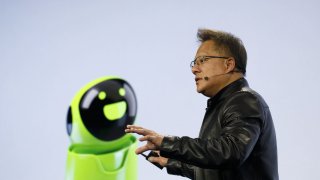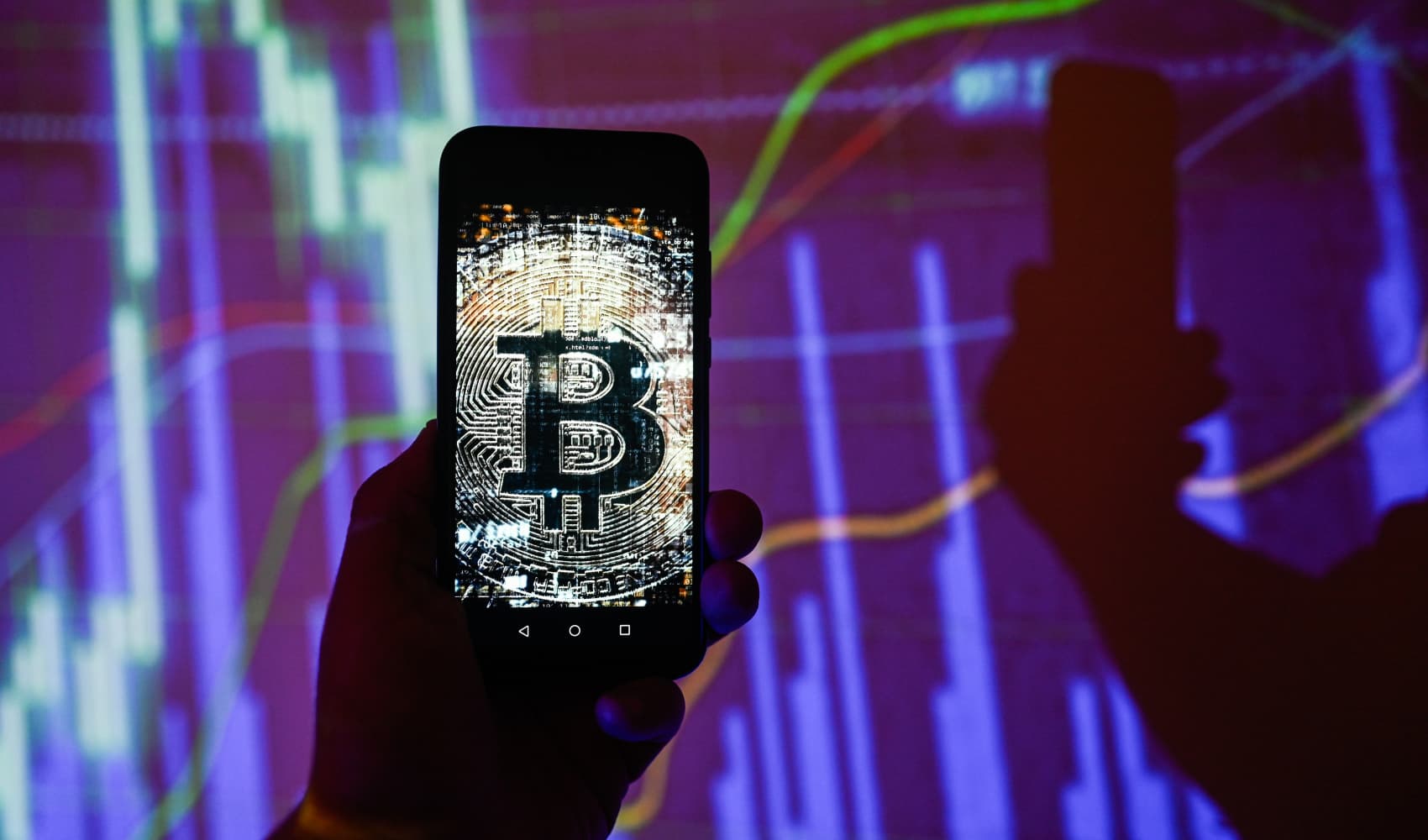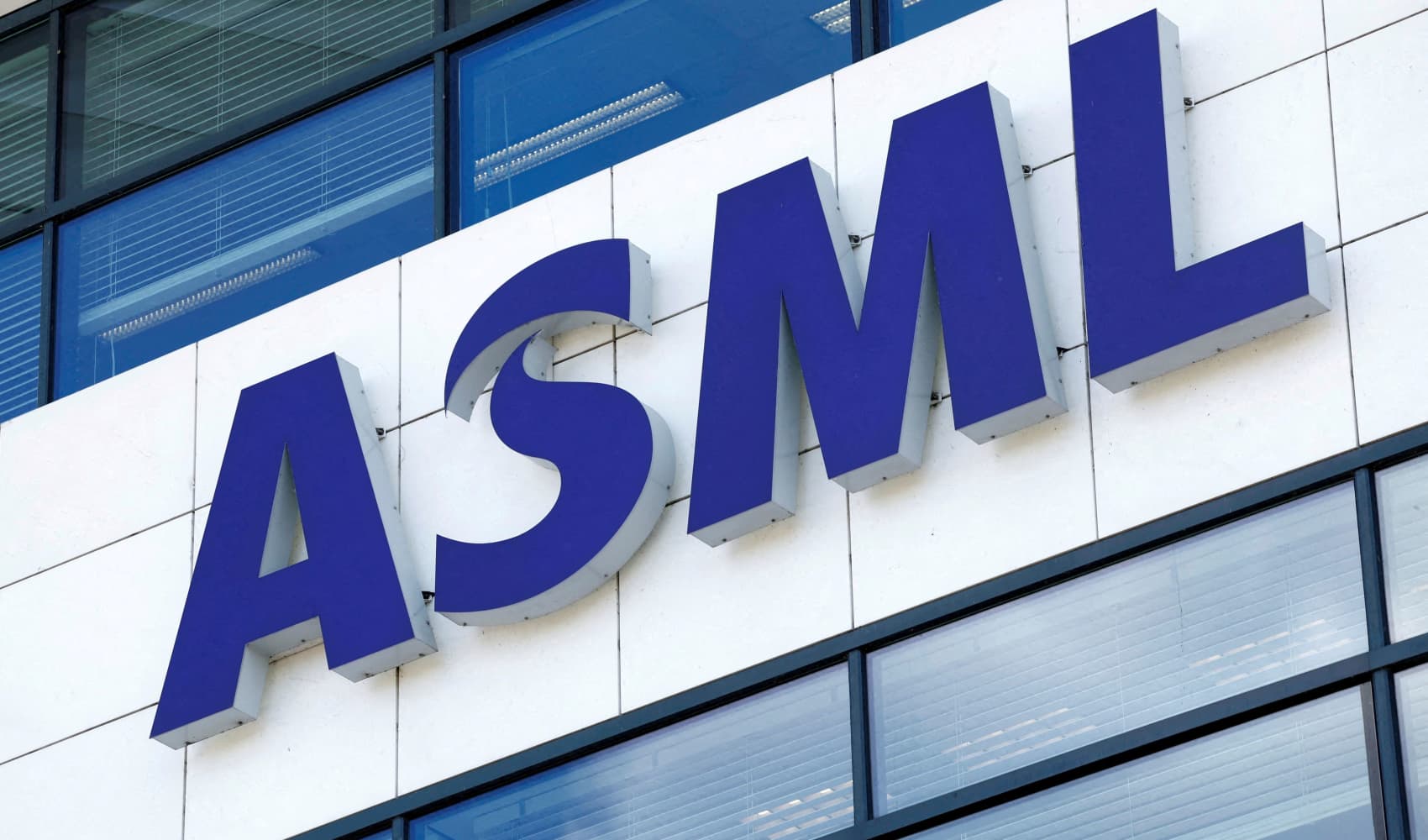
This report is from today's CNBC Daily Open, our new, international markets newsletter. CNBC Daily Open brings investors up to speed on everything they need to know, no matter where they are. Like what you see? You can subscribe here.
Nvidia shares exploded yesterday, and helped uplift other tech and semiconductor companies. But is the optimism an AI-induced hallucination?
What you need to know today
- Nvidia shares spiked 24% after it forecast that sales for the current quarter will exceed Wall Street estimates by more than 50%. At its current share price of $379, the semiconductor company has a market capitalization of $939 billion, putting it within arm's length of the hallowed trillion-dollar-company club.
Feeling out of the loop? We'll catch you up on the Chicago news you need to know. Sign up for the weekly Chicago Catch-Up newsletter here.
- The frenzy around Nvidia's skyrocketing shares has pushed up other semiconductor firms, such as AMD, ASML and TSMC. But shares of Intel dropped. Manufacturers of traditional computer chips are losing ground to those who produce graphics chips because the latter chips power artificial intelligence applications.
- U.S. stocks were mixed Thursday: Nvidia's surge helped the tech-heavy Nasdaq Composite to pop, but the Dow Jones Industrial Average dipped. Likewise, Asia-Pacific markets traded mixed Friday. Japan's Nikkei 225 last added 0.59% and briefly broke the 31,000 mark. Meanwhile, the country's core inflation in May rose 3.2% year on year, 30 basis points lower than April's reading.
- The debt ceiling deal — which continues to be hammered out — is meant to be a bipartisan compromise between Democrats and Republicans. But Republicans are viewing the vote itself to raise the debt limit as a concession to Democrats. These are their demands in exchange for the vote.
- Elon Musk's brain-implant company Neurolink announced it received approval from the Food and Drug Administration to conduct its first in-human clinical study. The implant aims to help patients with severe paralysis control external technologies using brain signals.
- PRO Missed out on Nvidia's rally? Here are other AI stocks favored by high-profile investors, such as Stanley Druckenmiller's Duquesne Family Office and Dan Loeb's Third Point.
The bottom line
Money Report
Sometimes AI hallucinates. That is, it can confidently give a wrong, and even completely made-up, answer.
Yesterday's explosive boom in Nvidia and AI-associated sectors, however, was no hallucination — at least on the surface. We've talked about how Nvidia's shares are skyrocketing (so much, in fact, that I'm running out of words to describe its stratospheric rise). Here are some quick statistics on how Nvidia's movement has reverberated throughout the broader market:
- The S&P 500 technology sector rose 4.45%, its highest one-day gain since Nov. 30.
- The VanEck Semiconductor ETF popped 8.6% to close at its highest level of the year; it briefly touched a 52-week high during the trading day.
- Microsoft rallied 3.85% and Alphabet rose 2.2% — both tech giants are frontrunners in AI.
With those impressive numbers, it's no surprise the tech-heavy Nasdaq popped 1.71%, while the broader S&P climbed 0.88%.
"Innovation in technology can outweigh the headwinds of a slowing economy," said Dylan Kremer, co-chief investment officer of Certuity, a wealth management firm. "Growth stocks are not dead."
But not everyone shares Kremer's optimism. Peter Boockvar, chief investment officer at Bleakley Advisory Group, pointed out that the rising tide in tech isn't lifting all sectors. Indeed, the Dow dipped 0.11%, closing below its 200-day moving average — a sign that it might continue dropping. The Russell 2000 Index, which tracks 2,000 small-cap companies, fell 0.7%.
Neither can tech and AI save a flagging economy.
"There are some serious holes in the economy that we can't ignore here," Boockvar said. "If the AI craze cools, people will see that the underlying business trends of Microsoft, Google and Amazon are clearly slowing because we all breathe the same economic air."
Still, there's no denying AI will "change the economy over the course of the next three to six years," according to Steve Blitz, chief U.S. economist at TS Lombard.
"AI is real," as Blitz said. The question is whether the optimism that AI's inspiring among investors is hallucinatory.
Subscribe here to get this report sent directly to your inbox each morning before markets open.






